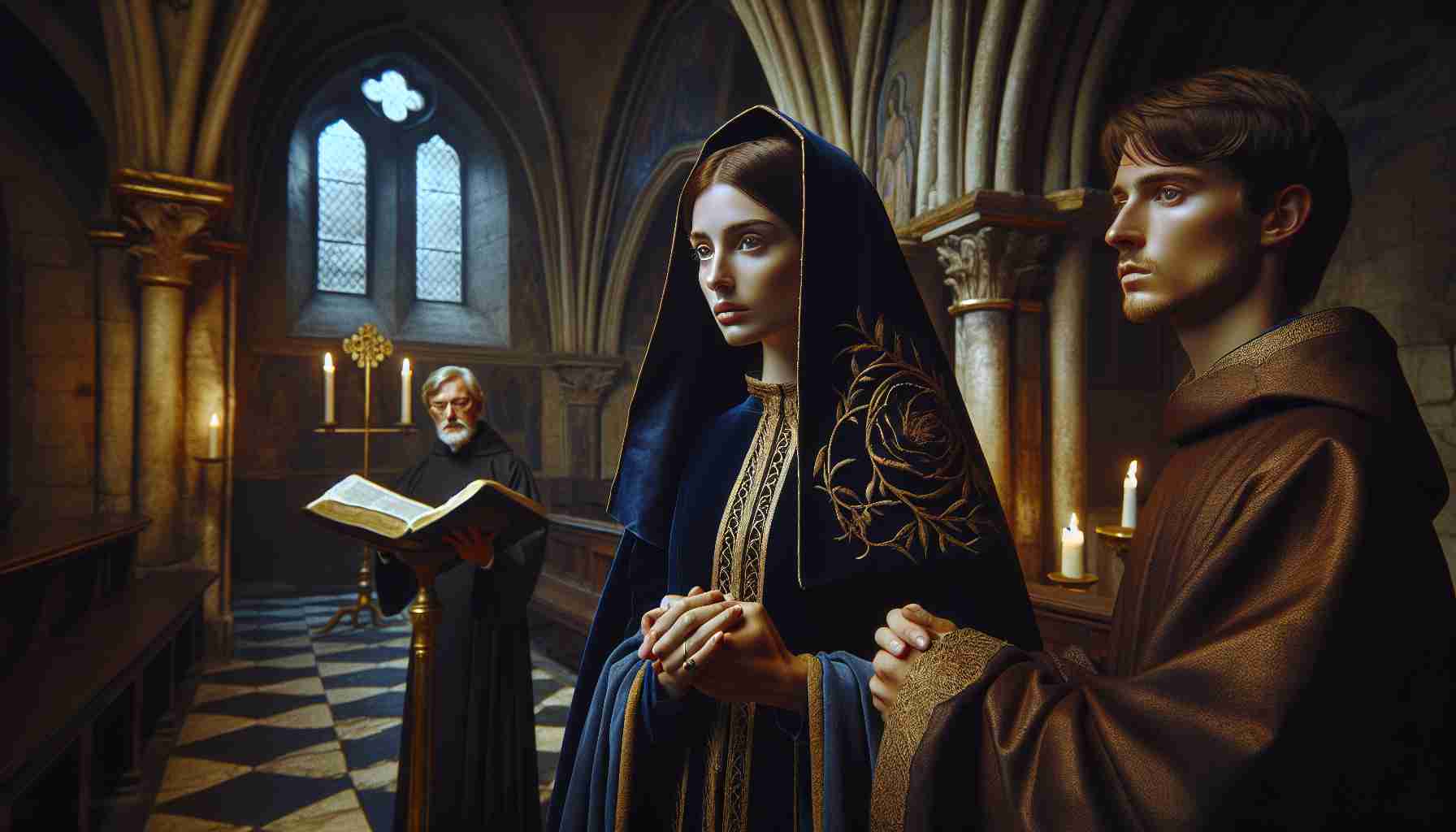

Stone walls bore witness where hearts collided and crowns were chained by grace. In the waxing spring of 1152, the abbey bells of Poitiers brushed the air with a reverence beyond routine. In the candlelit hush of the chapel at Saint-Pierre, Eleanor, Duchess of Aquitaine, stepped forward amid echoes of sacred vow and whispered speculation. Her cloak, dyed deep indigo with threads of gold, trailed behind her like the ripples of an unresolved past. Just weeks before, her marriage to King Louis VII of France had been annulled. To many, she had fallen. But to Eleanor, the path had just begun—for her loyalty was first to God, not kings, and the call she heard was not retreat, but renewal.
At her side stood Henry Plantagenet, Duke of Normandy, ten years her junior and searing with the fire of England’s ambition. The abbey’s ancient stones absorbed their oath. Their union, forged not in the luxury of the royal court but in pursuit of divine purpose, bound Aquitaine—half of France—with the claim to the English crown. Through their hands, history turned. Through her faith, eternity spoke.
Eleanor believed in the sacred duty of rulers to serve not only laws but lives. Her patronage had long flowed to Fontevraud Abbey, a monastic sanctuary led by abbesses who answered not to men but to God. Even when Pope Eugenius III chastised her political voice—particularly during the Second Crusade—Eleanor stood firm, attending to the poor, dispatching ships laden with food and arms to Christian ports, and praying with nuns who inscribed psalms by candlelight. Though the campaign faltered, her resolve deepened: God’s kingdom was not secured by sword alone, but by steadfastness of spirit.
In the chapel, as Henry read the marriage vows, hands clasped palm to palm, a silence fell that even breath dared not break.
“Husbands, love your wives, just as Christ loved the church and gave himself up for her,” the priest read from Paul’s letter, Ephesians 5:25. And for a moment, it was not Henry—ambitious and unyielding—who stood there, but a servant of God, pledging sacrifice over sovereignty.
A lifetime stretched between those vows and their fulfillment.
Years later, Eleanor walked the ruined cloister of Winchester, veiled in black, the torches sputtering as wind coaxed whispers from hollow vaults. Her husband, now King of England, had betrayed her trust. She had borne him eight children, borne civil wars and rebellions—and even imprisonment. Yet she did not crumble. She wrote letters to her sons, tempered rebellions with wisdom, and refused to curse the crown she had once helped place upon Henry’s head.
The power Eleanor wielded had been shaped on sacred ground and wielded in faith—not in vengeance. When Henry died, she emerged not as a grieving widow, but a seasoned regent. Her son, Richard the Lionheart, took the cross and led a crusade to Jerusalem. Eleanor, then near seventy, rode through treacherous mountain passes to gather tribute, negotiate with barons, and steady the familial alliance that kept Christendom from fracture. Even in old age, she understood that leadership began with service, as modeled by Christ.
She died at Fontevraud Abbey, surrounded not by the grandeur she once knew, but by the psalms of nuns who had grown up reading her governance as testament and prayer alike. Stone effigies now mark her tomb beside Henry. On the lid, her likeness holds a book, not a scepter. The scripture’s title is long worn, but its story lingers—in the empire she shaped and the grace by which she withstood it.
Even now, beneath beeswax candlelight, the cloisters of Fontevraud murmur with pilgrims’ prayer. Their fingers trace the weathered Latin carved above her resting place, whispering hopes to a queen who never ceased to serve. Her legacy is not merely etched into royal lineage, but rooted in Ephesians 5:25—a love exemplified not only by covenant, but by endurance, resilience, and holy responsibility.
In an age of conquest, she conquered with conviction. In a world ruled by men, she ruled with faith. And through that faith, Christendom was not just commanded—it was shaped.